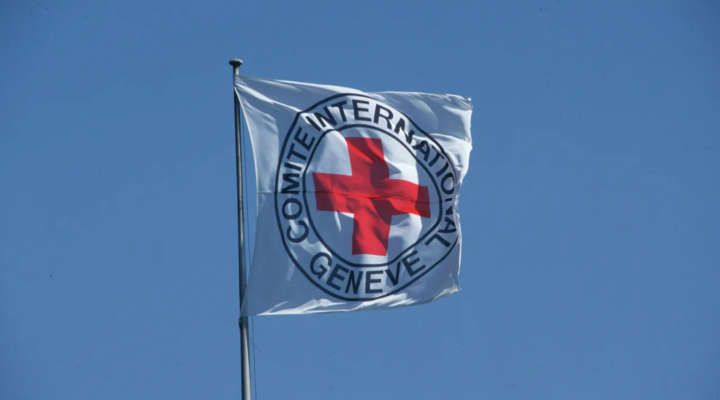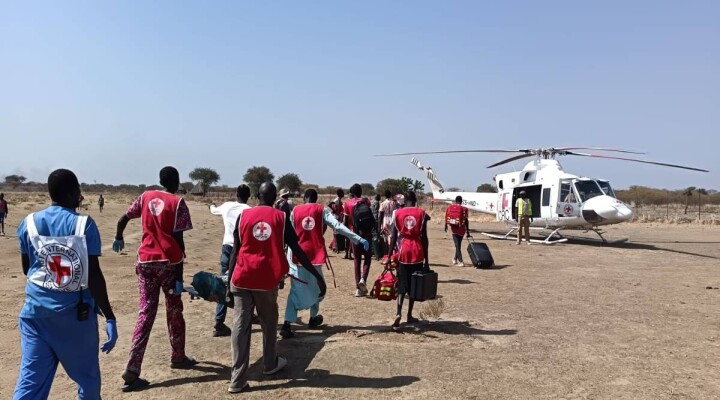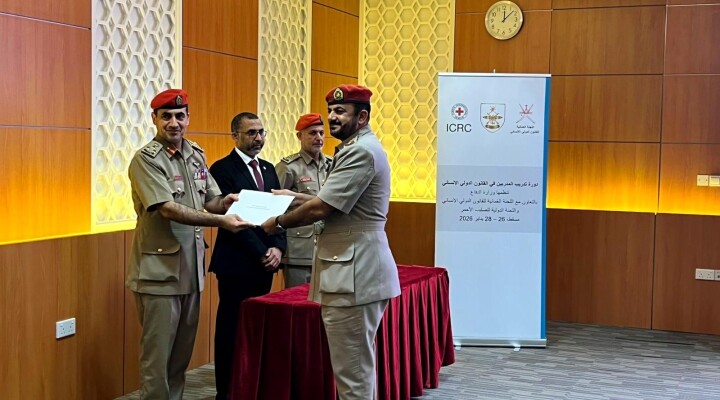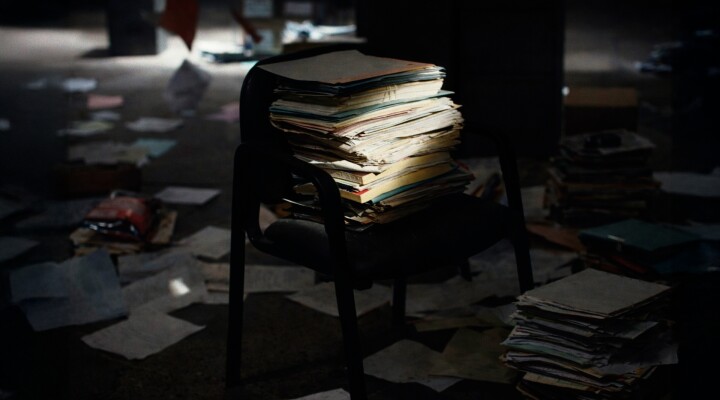In Sabha Medical Centre in southern Libya, nurses are doing the job they were trained for, not letting conflict or coronavirus, deter them.
Head nurse Fatima Amtir and her 16 colleagues have not left the centre since the first cases of VID-19 were confirmed in the city more than a month ago. They want to care for their patients and they don’t want to risk their families’ health.
“I haven’t left the hospital for 38 days now,” says Fatima. “I miss my children and my grandchildren. No one knows when we will get through the COVID-19 crisis. I can’t hug my children. I can’t even describe how that feels.”
Fatima is used to working in difficult conditions, but the separation from her family, especially because her own mother is ill with cancer, is a new and painful challenge.
“I witnessed all the events that happened since 2011, and I never missed a working day in the hospital, not even a single day,” she explains.
“But this time, during this pandemic, I can’t even leave or hug my parents. I don’t know if I’ll be able to see them again.”
Cases of the virus in Sabha are now rising fast. At the city’s respiratory clinic, Dr Ibrahim Saleh Al-Zwai is very worried about how he and his team will cope.
“We face many challenges. For instance, within a month, we recorded hundreds of cases. I think the situation is catastrophic. It’s a big problem if the number of positive cases rises above 500, we will lose control.”
“We will not be able to cover the needs, since we only have a limited number of doctors. The whole medical team is very limited; it can only deal with up to 400 to 500 patients. If the number of active cases exceed 500, then we will raise the white flag.”
Sabha has been in lockdown because of the Covid-19 pandemic; that means many people can’t go to work and earn a living. As Sabha resident Walid Al-Zaidani explains, after some weeks, many families could simply not afford to stay at home any longer.
“By the time the first COVID-19 case was detected in Sabha, people were tired, and worried. They couldn’t go on any more staying at home, without work and an income.”
For many Libyans, the years since 2011 have been very hard. Conflict, destruction, and insecurity have become the norm. Staying safe and earning a living is everyone’s right, and yet for Salma Hasan Ramadan, who moved to Sabha to escape fighting in Tripoli, it seems almost impossible.
“We got so tired in Tripoli,” she says. “We stayed a year despite the fighting. But then armed men came three days before Ramadan and asked us to leave. When we got back, we found nothing. I borrowed this shawl from a friend. All my clothes were taken and put into bags and stolen and the rest was set on fire.”
Her case is typical of many displaced families in western Libya. For them and many others, the International Committee of the Red Cross (ICRC) is providing food parcels, hygiene kits, and disinfection materials to families who are forced to stay at home in quarantine, after their breadwinners tested positive for COVID-19.
“We are trying to provide these families with food and hygiene items, in addition to some medical items that they might need during their quarantine,” explains the head of the Libyan Red Crescent’s Emergency Response Team Nidal Abu Bakr.
The ICRC is also providing personal protective equipment (PPE) and disinfection materials to healthcare centres in Sabha, and training hundreds of healthcare workers and Libyan Red Crescent volunteers in good disinfection practices and correct use of PPE.
But the days and weeks to come will not be easy for Sabha’s healthcare workers. In Fatima Amtir’s health centre, staff are falling ill with the virus.
“Today, after 38 days in the hospital, there are nurses who have been tested positive for COVID-19,” she says.
“This hurts, honestly, they were doing their job without knowing their patients were infected.”
Still, Fatima and her team will carry on doing their jobs, caring for all the patients who come to them needing help. And the ICRC and the Libyan Red Crescent will carry on doing as much as possible to ensure Sabha’s healthcare workers – and their patients – can stay safe during the pandemic.
KEY FACTS
· 44% of COVID19 cases in Libya were recorded in Sabha
· More than 20 doctors and health care workers were tested positive for COVID19 in Sabha
· Out of 1,151 active cases in Libya (as of 15 July) 486 are active cases in Sabha.
For further information please contact:
Qusai ALAZRONI, Libya spokesperson, +216 55 166 657
Sara Alzawqari, Middle East spokesperson, +961 3138 353
SHOTLIST
Location: Sabha, Libya,
Length:
Producer/Camera: Naiem Mohamad, Mohaned Karima, Abdulsalam Abu Bakr, Abdulmonem Abdulqader, Hussein Elyasser
Filming date: June/July 2020
Copyright: ICRC access all
On Screen Credit: ICRC or logo
Time code LOCATION / IMAGE / TRANSCRIPTS
0:00 – 0:06 Destroyed street, Ain Zara
0:06 – 0:13 Fatima putting on PPE
0:13 – 0:19 Nurses in hospital corridor
0:19 – 0:40 Sound bite nurse Fatima Amtir (original Arabic)
“I haven’t left the hospital for 38 days now. I miss my children and my grandchildren. No one knows when we will get through the COVID-19 crisis. I can’t hug my children, I can’t even describe how that feels.”
0:40 – 0:51 Nurses testing patient
0:51 – 1:08 Sound bite nurse Fatima Amtir (original Arabic)
“I witnessed all the events that happened since 2011, and I never missed a working day in the hospital, not even a single day. But this time, during this pandemic, I can’t even leave or hug my parents. I don’t know if I’ll be able to see them again.”
1:09 – 1:53 Various inside hospital explaining hygiene, testing etc
1:53 – 2:37 Sound bite Dr Ibrahim Saleh Al-Zwai (Original Arabic)
“We face many challenges. For instance, within a month, we recorded hundreds of cases. I think the situation is catastrophic. It’s a big problem if the number of positive cases rises above 500, we will lose control.We will not be able to cover the needs, since we only have a limited number of doctors. The whole medical team is very limited; it can only deal with up to 400 to 500 patients. If the number of active cases exceed 500, then we will raise the white flag.”
2:37 – 3:01 Various ruined streets in Ain Zara, empty streets in Sabha
3:01 – 3:35 Sound bite Walid Al-Zaidani (Original Arabic)
“By the time the first COVID-19 case was detected in Sabha, people were tired, and worried. They couldn’t go on any more staying at home, without work and an income.”
3:35 – 3:48 Various destroyed houses, old munitions lying in streets
3:48 – 4:04 Sound bite Salma Hasan Ramadan (Original Arabic).Displaced woman from Tripoli currently live in Alasabaa, western Libya
“We got so tired in Tripoli. We stayed a year despite the fighting. But then armed men came three days before Ramadan and asked us to leave. When we got back, we found nothing. I borrowed this shawl from a friend. All my clothes were taken and put into bags and stolen and the rest was set on fire.”
4:04 – 4:30 Various, ICRC delivering supplies to hospital
4:30 – 4:48 Sound bite Nidal Abu Bakr, Libyan Red Crescent (original Arabic)
“We are trying to provide these families with food and hygiene items, in addition to some medical items that they might need during their quarantine.”
4:48 – 4:58 Various nurse in lab with testing material in Abo Salim, south of Tripoli
4:58 – 5:24 Sound bite nurse Fatima Amtir (original Arabic)
“Today, after 38 days in the hospital, there are nurses who have been tested positive for COVID-19. This hurts, honestly, they were doing their job without knowing their patients were infected.”
5:24 – 5:40 Various Fatima working in hospital



